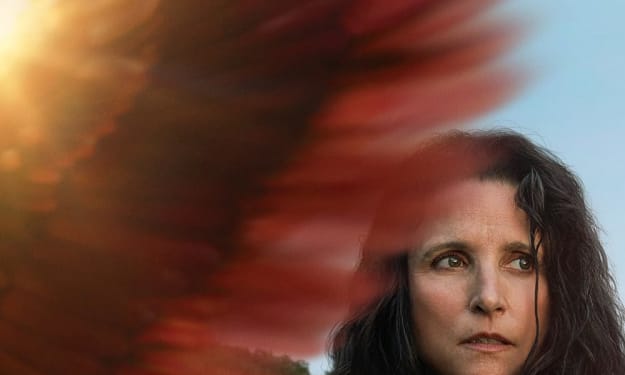'Pain and Glory' (2019) Review
A magnum opus from Almodóvar.

In a similar vein to Once Upon a Time in Hollywood (2019), Pain and Glory (2019) is another set of cinematic giants coming together to create a reflective magnum opus. With a swell of critical acclaim, and a "Best Actor" win at Cannes, Pain and Glory has finally arrived on UK screens, and has continued to maintain its high standards. Almodóvar has had a long career filled with widespread acclaim, and an Oscar win for his original screenplay. He has now turned his attention to the twilight years of a once-successful film director, who has become a self-inflicted recluse due to bad physical health and depression. Through a reconnection with an actor from years before, and an introduction to heroin, he begins to reflect on his past as it rears its head into the present.
The vulnerability and nuance in Antonio Banderas’s performance as film director Salvador Mallo is the cornerstone from which this film is built. Every facet of the character feels natural. This is a man who could easily exist and function on the peripheries of the industry today. Through Banderas’s performance, there is a constant reminder that he is imprisoned by his deteriorating mental and physical health, preventing him doing what he loves most, which lingers large as an ominous shadow throughout the film. The character of Salvador Mallo is expanded deeper by the characters Almodóvar puts around him. From an old flame, his mother and old colleagues play a significant role in the reinvigoration of his craft as a writer. They also give unique insights into the different parts of his life, both past and present. Penélope Cruz is a force as Mallo’s young mother, who is a clear survivor and wants what she thinks is best for her son. Their relationship is complicated and totally believable. Its progression from when Salvador was a young child to when he is old and must take care of his mother speaks volumes about both characters. Asier Flores, who plays the director as a young boy, is superb, a performance that says so much through very little, and always succeeds in bringing further depth to the overall character, translating seamlessly into the scenes when he is older.
Performances are complimented by the film's vibrant aesthetic with cinematography that uses whitewashed walls to create sun-bleached, dream-like flashback scenes. The bold colours in Salvador’s apartment and outfits contrast with the depressed, broken character, and the life he is leading. This is a wonderful clash of moods, and for many, can be very symbolic of how life is.
The narrative unfolds from a present-day perspective but regularly, through flashbacks, wanders back into the memories of its protagonist. This, in turn, fills the upcoming scene with a deeper context, and as a result it slowly forms a picture of who he is, and who the people are surrounding him. Furthermore, the histories amongst these characters are heavily insinuated, but Almodóvar chooses not to explain what took place between Mallo and each of the characters that he encounters through the film, which lets the audience decide for themselves and bring all their emotional baggage to the characters and the film, setting up a fascinating discussion as to what these individuals have been through in their turbulent relationships. This all falls perfectly into the rhythm of the film, which is a minor part of a story that began far before, and will continue long after, the film’s runtime, as Mallo continues to rediscover himself.
Pain and Glory deserves all the acclaim it has received. It’s honest, vulnerable, and also quietly optimistic. Almodóvar draws on his own experiences to create a complicated, quasi-biographical film, instilling real life with fantasy, and vice-versa. The performances from the major cast all function so tangibly for this same reason. It can be read as a reflective examination of a filmmaker's own career from the person who knows it best, and his relationship to his art. But, Almodóvar makes it clear: Salvador Mallo can’t survive without cinema, a fact that will resound with audiences across the world.
About the Creator
Conor Crooks
Living in Newcastle Upon Tyne, born in Belfast. Studying a masters in Film, I'll watch anything starring Bugs Bunny and Michael Jordan.
All credit goes to the respective creators of the images in my articles.
Enjoyed the story? Support the Creator.
Subscribe for free to receive all their stories in your feed. You could also pledge your support or give them a one-off tip, letting them know you appreciate their work.






Comments
There are no comments for this story
Be the first to respond and start the conversation.